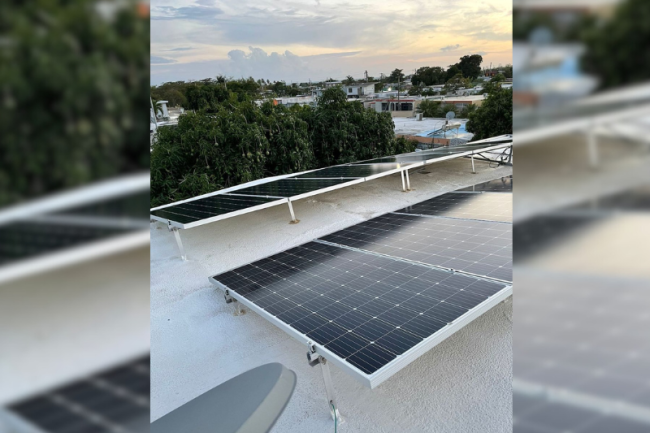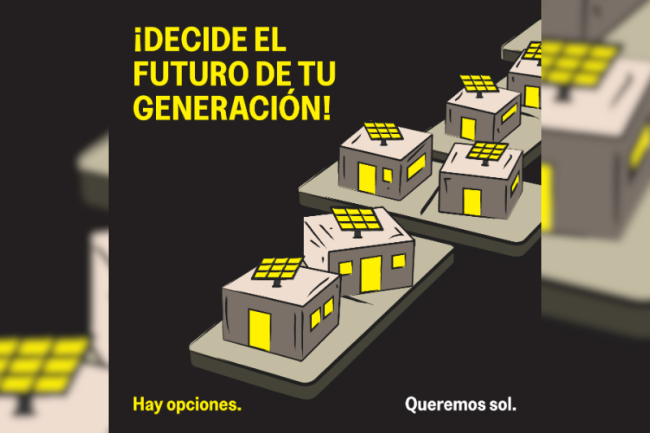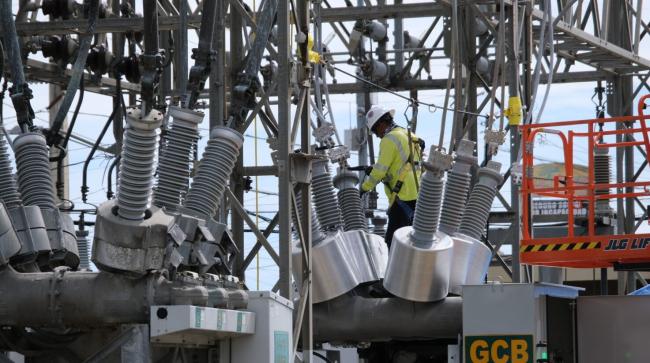
The Federal Emergency Management Agency (FEMA) recently announced the organization is running out of funds. As a result, it will now limit financial support to “critical response efforts,” rather than rebuilding communities. That means the agency will have a difficult time responding to climate disasters well before the fiscal year closes on September 30, 2023.
This change, released in late August during peak hurricane season, communicates very concerning news for communities along the eastern seaboard, the Gulf Coast, and the insular areas in the Caribbean and the Pacific. The announcement came just days after Maui experienced high winds from Hurricane Dora that contributed to the devastating fires in Lahaina, or what some Native Hawaiians described as “plantation disaster capitalism” at work. Even California has experienced hurricane damage this year. Across Turtle Island and the world, communities are enduring new wounds inflicted by racial capitalism and climate chaos.
For many, the September anniversaries of Hurricanes María and Fiona and the traumatizing experiences associated with them provide yet another reminder that U.S. government agencies, like FEMA, are complicit in lethal systems. As communities grapple with the ongoing impacts of climate colonialism and imperialism, these interconnected networks of power continue to mark these groups as expendable and not worthy of energy systems based on self-determined energy justice.
While more frequent and intense storms certainly are draining FEMA’s budget, the agency’s nefarious policies are also contributing to the skyrocketing costs incurred. Take, for example, Puerto Rico. This year, FEMA committed to providing 700MW of new temporary fossil-fired electric generation units for $5 billion, allegedly to stabilize Puerto Rico’s electric system. Studies show that these same funds could make Puerto Rico’s electric system much more resilient and save lives if used by the government to provide distributed community-based renewable energy.
Life-Saving Energy Alternatives
According to the Queremos Sol proposal and coalition, on-site or rooftop solar, coupled with battery energy storage systems, energy conservation, efficiency, demand response and literacy programs, and similar technologies and approaches, are proven alternatives to Puerto Rico’s fragile fossil fuel-powered grid. In Puerto Rico, residents, businesses, and communities that can afford to buy or lease rooftop solar equipment are advancing these alternatives.
Yet although a small portion of individuals are accessing life-saving rooftop solar and batteries, most people in Puerto Rico cannot afford the expensive equipment being leased or sold by the large U.S.-based corporations that dominate the market in the archipelago. This inequity creates what might be called a separate and unequal electric system in Puerto Rico. One system exists for those who can afford the high tariffs imposed by big corporations and another exists for the majority of people (1.5 million ratepayers) who don’t have the financial means to access rooftop solar and storage.

FEMA’s refusal to invest in rooftop solar energy alternatives—even as disaster recovery funds go to waste when climate change-fueled storms strike again—motivates important questions: Why would the agency dedicate billions of dollars for temporary electric generation units when so many experts, including researchers from the Department of Energy’s National Renewable Energy Laboratory, have documented Puerto Rico’s rooftop solar potential? Why is FEMA spending $5 billion on new fossil-fired energy and another $14 billion to rebuild a centralized grid when Congress noted back in 2005 that the insular areas, like Puerto Rico, are constantly struck by storms that tear down transmission and distribution wires, poles, and towers and flood substations, necessitating disaster recovery funds? Why doesn’t FEMA enable access to these systems for low- and medium-income residents, businesses, and institutions?
The answers to these questions clearly point to the fossil fuel industry’s capture of FEMA and the Biden Administration more broadly.
All told, the FEMA and related federal funds to rebuild the centralized, fossil-fired, import-dependent electric system in Puerto Rico hover around $20 billion. In August, the U.S. Department of Energy (DOE) announced funding for $450 million of a $1 billion congressional allocation. These funds would primarily go to large U.S. corporations to provide small rooftop solar systems to low-income and disabled residents of the archipelago.
This distribution might sound like a beneficial move because some of the communities most marginalized by dominant systems of power would receive these installations. But a scheme that makes already wealthy U.S. corporations richer continues to position Puerto Rico as an experimental, exploitable space to maximize green capitalist profits. Compared to the amount allocated for distributed renewable energy, the federal investment doubles down 20-fold on the business-as-usual, colonial electric system.
In short, the DOE’s proposal does not empower local communities and small businesses. Instead, the allocation keeps residents dependent on the few large U.S. corporations that charge egregious amounts for rooftop solar systems. These federal programs always seem to have strings attached that end up favoring outside interests with minimal benefits or multiplier effects in local economies and communities.
FEMA Bets on Fracked Gas
FEMA delegated the responsibility of distributing the $5 billion for new methane gas-fired electric generation units to the Army Corps of Engineers—an agency notorious for dubious deals with big industry that have been well documented in the case of Louisiana since at least Hurricane Katrina. Through an intermediary called Weston Solutions, FEMA has started to funnel the $5 billion to a group of companies affiliated with New Fortress Energy. This conglomerate peddles fracked methane gas, and founder Wes Edens is a well-known Democratic Party donor.
NFEnergia, a New Fortress affiliate that operates in Puerto Rico, illegally built in 2019-2020 a Liquified “Natural” Gas (LNG) terminal in San Juan Bay that, to this day, lacks authorization from the Federal Energy Regulatory Commission, even though the commission ordered the company to submit an application to the agency. In addition, The Capitol Forum has reported that New Fortress has illegally shipped fracked gas from the Gulf Coast to Puerto Rico, in violation of the Jones Merchant Marine Act.
After Hurricane Maria, the New Fortress conglomerate swooped into Puerto Rico and finagled a long-term contract to operate critical docking areas in the Port of San Juan, which enabled this power web to control northern Puerto Rico’s LNG imports. The government of Puerto Rico granted a contract to Genera PR, a New Fortress affiliate that claims to be “Para todo Puerto Rico,” to operate the power plants in the archipelago. Meanwhile, another New Fortress affiliate sells methane gas for the plants.
This arrangement creates conflicts of interest to the detriment of Puerto Rico ratepayers, many of whom strive to be what Puerto Rican engineer Efraín O’Neill-Carrillo and colleagues call "energy actors." FEMA’s funding of this corporate conglomerate makes alternative actions toward community-based rooftop solar very difficult.
The FEMA funding scheme for new temporary gas-fired generation is a blatant example of governmental agency capture, waste, and colonialism. FEMA provides billions to a U.S.-based methane gas conglomerate to keep Puerto Rico dependent on centralized fossil-fired energy rather than enable the use of the resources and political will that abound in the archipelago: sunlight, sprawling rooftops, and huge social acceptance for this type of transformation to make Puerto Rico a more viable place.
Federal Funds Curse
Community groups and non-profit organizations in Puerto Rico are implementing rooftop solar pilot projects. Like communities and regions that are exploited for their environmental “riches” or “resources''—which some scholars describe as a “resource curse,” Puerto Rico is experiencing what might be called a “federal funds curse.” This experience reveals how vulture corporate interests, like LUMA Energy (Quanta Services and ATCO Canadian Utilities), the AES Corporation, Genera PR, NFEnergia, and New Fortress Energy work to capture government agencies by swooping in for federal funds, allegedly meant for disaster recovery and mitigation.

As just one example, FEMA's approval of LUMA Energy’s $1.2 billion request for “island-wide vegetation clearing” will result in massive tree destruction and habitat loss. These corporations continue harming the air, land, and water and disproportionately pollute and contribute to premature deaths in Puerto Rico’s largely Afrodescendant and poor communities.
Civil society in the archipelago and collaborators throughout the United States and beyond have shown that Puerto Rico need not be a place of unmitigated compounded disasters. Similarly, the federal budget need not be controlled by the fossil-fuel industry and other corporate interests.
However, as a U.S. colony, Puerto Rico lacks meaningful access to the decision-makers and the political power needed to move beyond the realm of corporate capture. The pattern of using historic amounts of federal funds to enrich fossil fuel and other big industries in Puerto Rico, while deepening dependence and barring self-determination, does not serve the public interest.
In these times of mounting climate chaos, communities and civil society organizations throughout the United States must hold FEMA accountable by demanding substantial funding to advance energy justice.
Ruth Santiago is an environmental and community lawyer who lives and works in Salinas, Puerto Rico. She is a member of the White House Environmental Justice Advisory Council and is a trustee on the board of Earthjustice.
Catalina de Onís is a faculty member in the Clark Honors College at the University of Oregon. She is the author of Energy Islands: Metaphors of Power, Extractivism, and Justice in Puerto Rico (University of California Press, 2021) and co-author of bilingual children’s book La justicia ambiental es para ti y para mí/Environmental Justice Is for You and Me (Editora Educación Emergente, 2021). Find out more about her research, teaching, and advocacy work.

